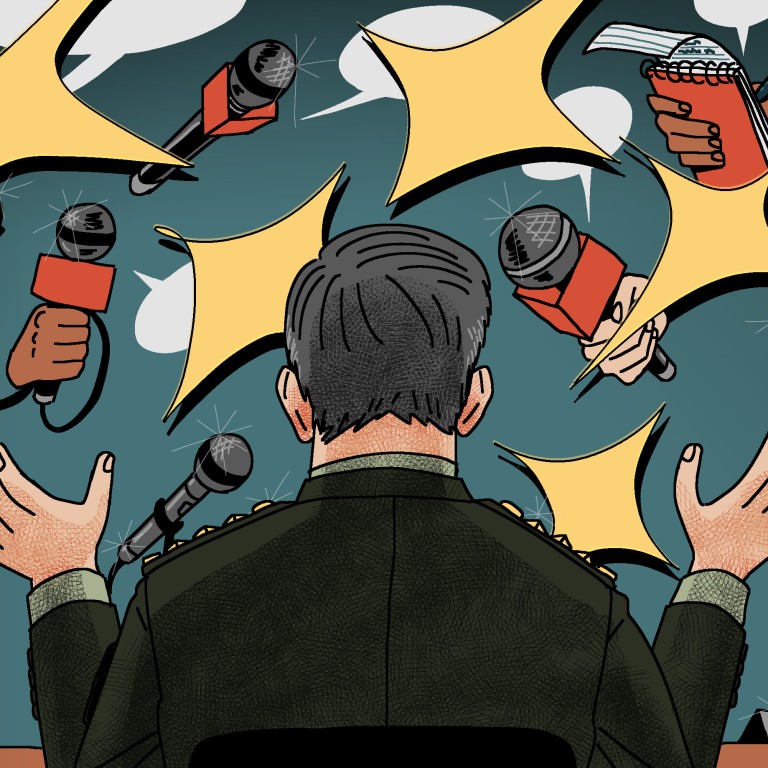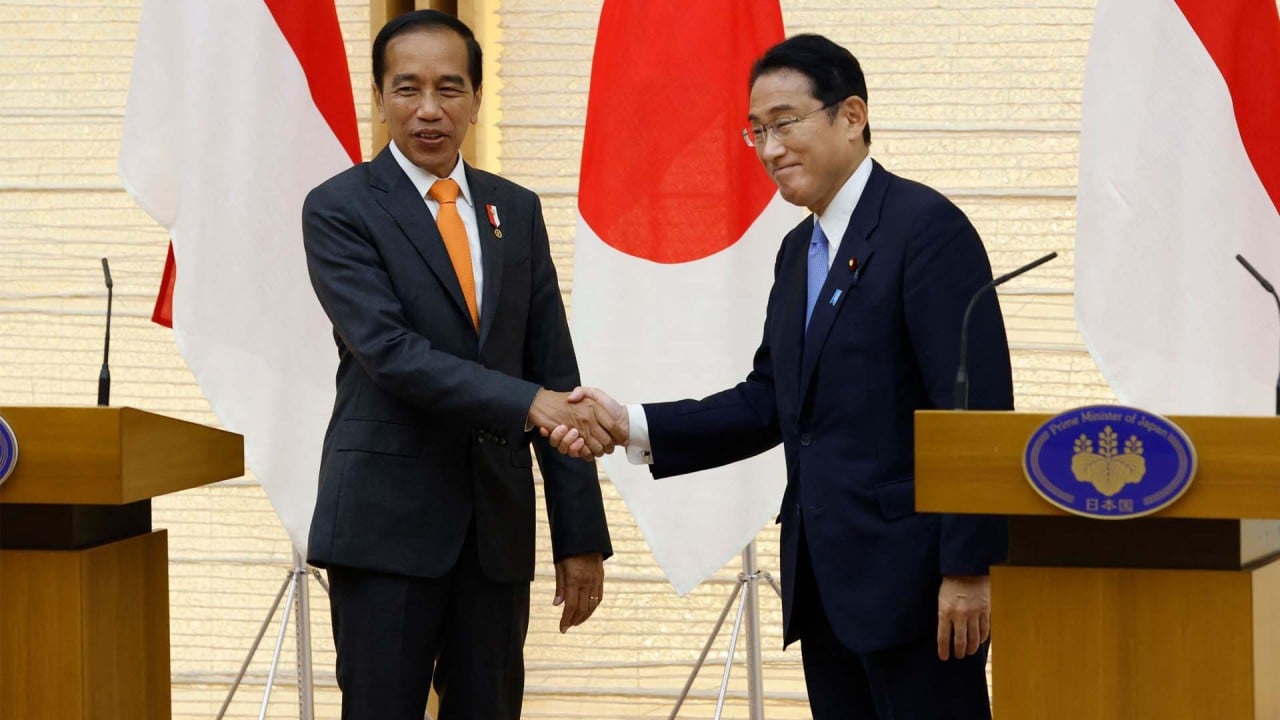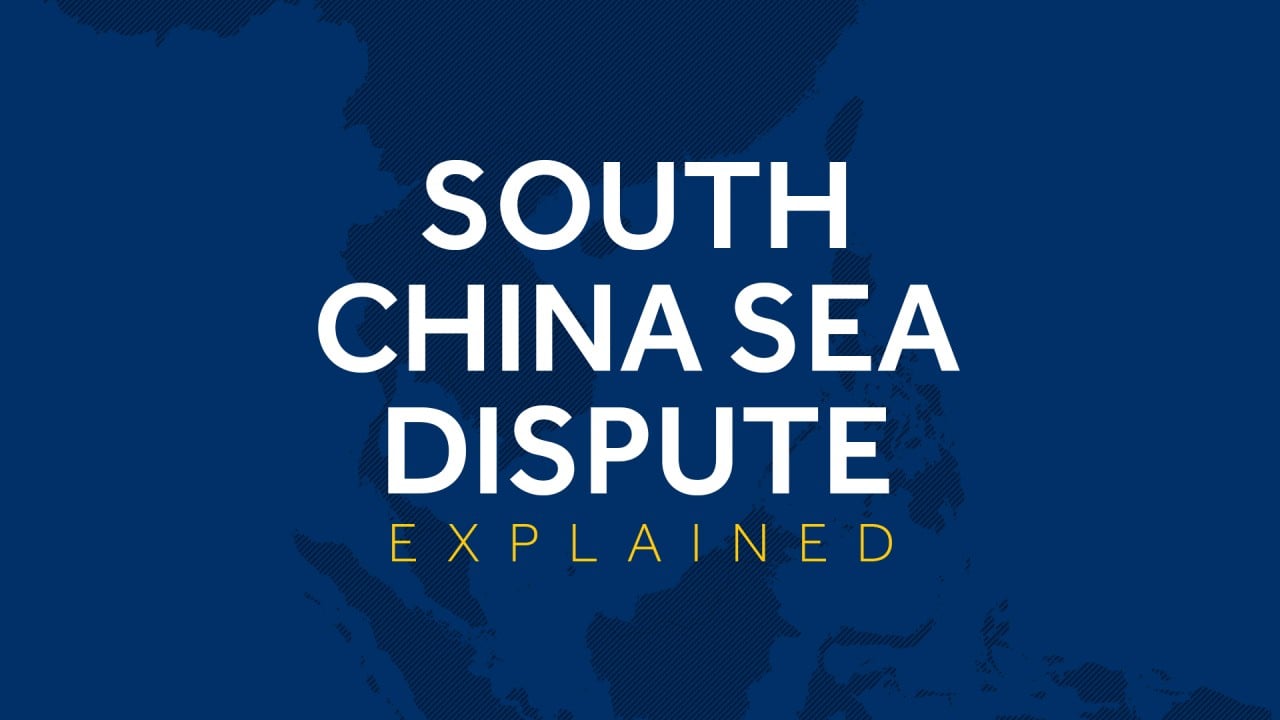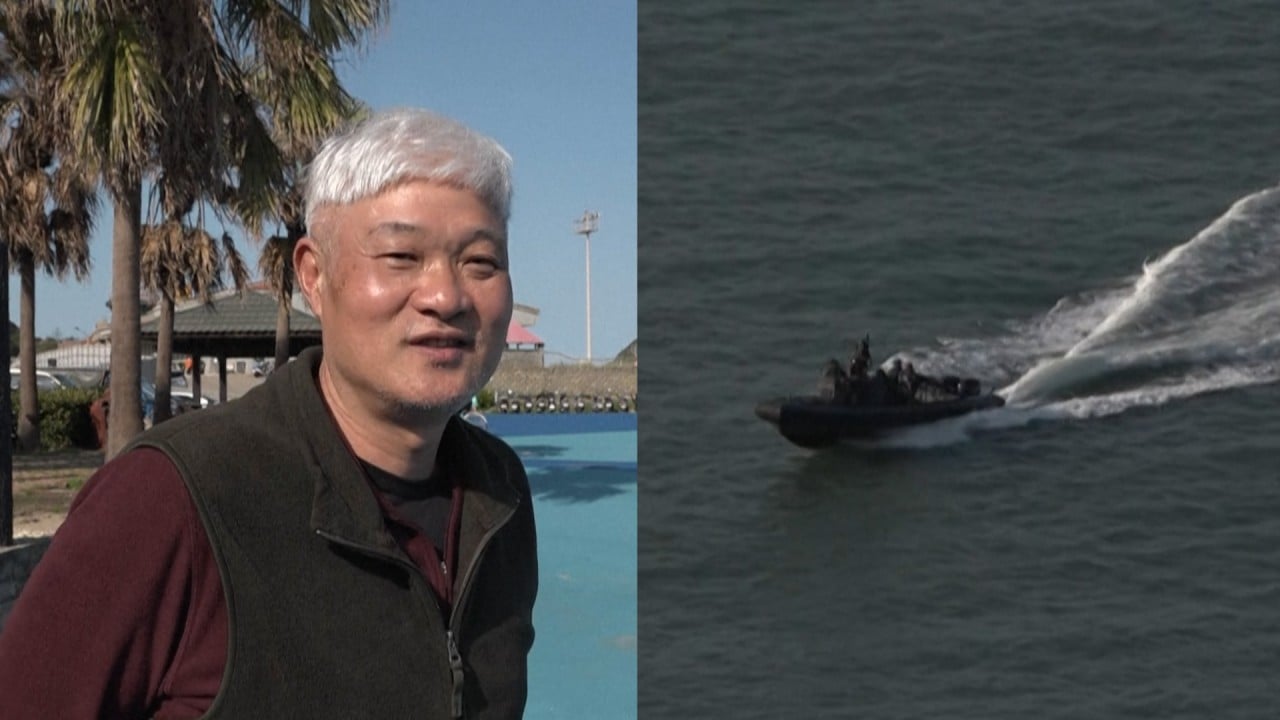
What message does China defence chief Li Shangfu have for Shangri-La Dialogue?
- Chinese delegates for years have robustly fended off criticism at the forum from neighbouring countries and Western governments
- Analysts are expecting a similar firm stance from Beijing’s new defence minister when he addresses this week’s event
For years, China has fended off criticism at the forum from its neighbours and Western governments unconvinced of the People’s Liberation Army’s intentions, which Beijing says are peaceful.
Suspicions only grew as military facilities appeared on artificial islands in the South China Sea and unsafe close encounters were reported by other militaries with PLA planes and ships.
Chinese defence chief will speak at Shangri-La Dialogue, ministry says
The forum will be an opportunity for Li to speak to his counterparts from China’s neighbours – including Japan, South Korea and Singapore – as well as Western nations such as Canada.
The European Union’s foreign policy chief Josep Borrell and Australian Prime Minister Anthony Albanese will also be at the conference.
Since then, some Southeast Asian countries and US allies have been closely engaging with the United States in a series of joint military exercises in the region which Beijing regards as furthering Washington’s containment policy against China.
Indonesia and the US effectively upgraded their annual Garuda Shield drills last year to bring in 12 other Asia-Pacific countries including Australia, Japan and Singapore.
In April, the Philippines agreed to give the US access to four more bases, three near Taiwan and another next to the South China Sea. Japan and South Korea have also been forging closer ties, which Washington says will strengthen their diplomatic and defence relationship.
Analysts expect Li to take a hardline message to the forum and lay down Beijing’s firm stance against “American hegemony” but his personal attendance will also offer a rare chance for the Chinese leadership to communicate in person with other forces in the region.
“You’re at an event that is sort of your Western-dominated event on regional security, and you have to appear or look strong,” said Collin Koh, a research fellow at the S. Rajaratnam School of International Studies in Singapore.
“So, that’s why I do feel in terms of the domestic political constraints that they face, that appears to be an overriding reason they put up the rhetoric.”
Work together to resist bloc conflict, China urges Singapore and Malaysia
At last year’s forum, Li’s predecessor said in a speech that Beijing’s only option in the face of Taiwanese independence moves was to “fight at all costs and to the very end”. Wei also warned that the only way US-China ties could improve was for Washington to stop trying to contain China.
The Chinese delegation presented a similar standpoint at last year’s conference, when Senior Colonel Zhao Xiaozhuo from the PLA Academy of Military Sciences said there were “negative views” that the Shangri-La Dialogue is dominated by and serves the interests of the US and its allies.
Singapore’s defence minister Ng Eng Hen responded to the Chinese delegates at last year’s dialogue with a question.
“Is it better to come to an open platform, to subject yourselves sometimes to a tyranny of questions, to what might seem a common view from others, to explain yourself? Or to retreat from that engagement? That is something that China must decide for itself,” Ng said.
US-China talks at security summit give region ‘some comfort’, Singapore says
But behind the robust public speeches are closed-door bilateral and informal multilateral meetings on the forum’s sidelines, where a more conciliatory tone could be adopted.
“It might be the case that in these bilateral, sideline [talks] in the background, China might not necessarily have to appear aggressive. They could engage in a more assuring or less aggressive part of the discussion on that level,” Koh said.
The PLA has also been reaching out to its counterparts in Southeast Asia since China’s Covid-19 lockdowns ended, in a bid to foment ties as a counter to Washington’s Indo-Pacific strategy.
The Chinese navy said on Wednesday that it will send a frigate and a destroyer to the Multilateral Naval Exercise Komodo in June in Indonesia. The Indonesian navy said in December it had invited 47 “friendly countries” to take part, including North Korea.
South China Sea code fraught with ‘unbridgeable’ differences despite progress
But China should not expect the support of Laos and Cambodia – long considered its closest friends among the 10-member Association of Southeast Asian Nations – in its territorial disputes over the South China Sea.
Drew Thompson, a visiting senior research fellow with the Lee Kuan Yew School of Public Policy in Singapore, said neither country plays a central role in the Shangri-La Dialogue nor in the code of conduct talks.
“China’s not approaching its relationships with Southeast Asia … with an objective towards compromise,” Thompson said.
“China’s not necessarily looking to win hearts and minds at the Shangri-La Dialogue,” said Thompson, who managed ties between militaries as director for China, Taiwan and Mongolia in the US defence secretary’s office from 2011 to 2018.
“It’s looking to lay out its bottom line and point out the risks that other countries face should they fail to accommodate China and its objectives,” he said.
Beijing has competing claims of sovereignty over the Spratly and Paracel island chains in the South China Sea with Asean members Vietnam, the Philippines, Malaysia and Brunei. There is also a claim by Taipei in the contested waterway.
In February, the Philippines complained that a Chinese military ship shone a laser at its coastguard vessel.
South China Sea: risk of flashpoints ‘high’ as energy projects expand
A “red line” in Chinese diplomacy is Taiwan – which Beijing regards as a breakaway province that must be united with the mainland, by force if necessary – and it is once again expected to loom large at the Shangri-La Dialogue.
A senior US defence official reported that Taiwan dominated a bilateral meeting at last year’s forum between Wei and US Defence Secretary Lloyd Austin, in their first in-person talks.
Most countries, including the US, do not recognise the self-ruled island as an independent state. However, Washington is opposed to a unilateral change in the status quo.
Whether Li and Austin meet at this year’s forum is one of the big questions hanging over the event, with both defence chiefs attending. The US said on Monday that China had declined a meeting. A day later, Beijing said Washington should “correct its wrong behaviour immediately” and create conditions for dialogue.
But the Shangri-La Dialogue has become less important to China, which now has more opportunities for dialogue, according to Ma Bo, a visiting senior fellow at the ISEAS-Yusof Ishak Institute in Singapore.
“China now has various domestic and international platforms to advocate its security policy, such as the Xiangshan Forum in Beijing and the Boao Forum in Hainan Island, and more will come,” said Ma, who is also an associate professor at Nanjing University’s school of international studies.
China created the Beijing Xiangshan Forum in 2006, in answer to Shangri-La, but it has yet to gain the traction and influence of the bigger Singapore conference. The agenda, set by organisers associated with the PLA Academy of Military Sciences, tends to shy away from contentious issues.
US military presence risks conflict in South China Sea, Boao Forum hears
Under the initiative – announced by Chinese President Xi Jinping last year – China plans to revitalise multilateral events such as the Middle East Security Forum and the China-Africa Peace and Security Forum.
Ma said that China was still learning to find a louder voice in international discourse, especially in the English-language media dominated by the West.
“It is natural for any country in history to draw global scrutiny once it reaches the status of a global power,” he said.







